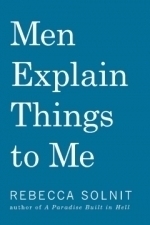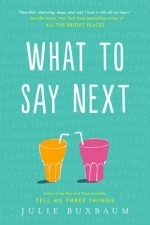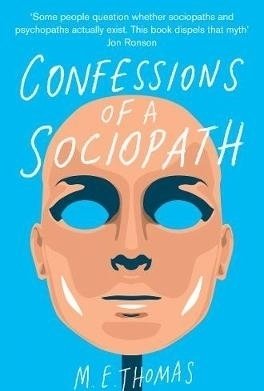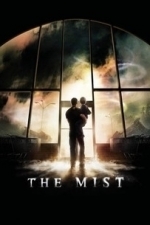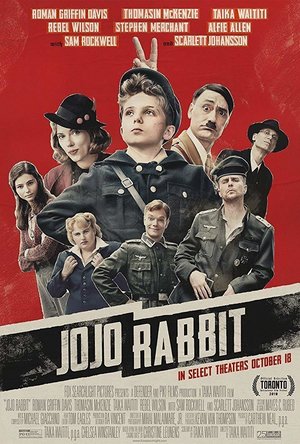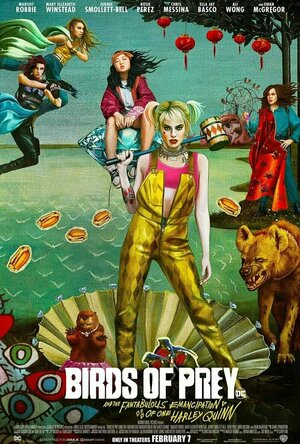Search
Search results
Tim Booth recommended Fun House by The Stooges in Music (curated)

Anonymous Chat Rooms, Dating
Dating, Lifestyle and Social Networking
App
Cool chat rooms. Self-destructing messages. Talk about anything with strangers. Meet new people, ask...
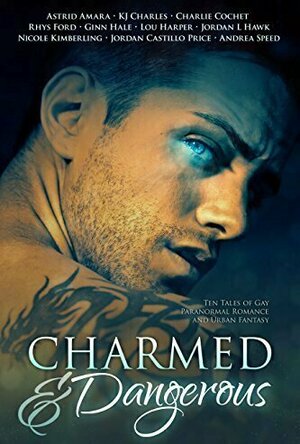
Charmed & Dangerous
Book
Magic takes many forms. From malignant hexes to love charms gone amok, you’ll find a vast array of...
Urban Fantasy Paranormal MM Romance
Jamie (131 KP) rated Men Explain Things to Me: And Other Essays in Books
Jul 26, 2017
Poorly written (2 more)
Not intersectional
Lack of sources in the physical version
Mediocre essays, I wish I could've liked this more
Disappointment and shallow is probably the most apt descriptions I can think of when describing this book which is really sad because I usually enjoy feminist essays.
The titular essay, Men Explain Things to Me, discusses the author’s experiences with men explaining things with the assumption that she couldn’t possibly know due to her gender. While I was nodding my head that yes, I have experienced this as well, there was not much else. There was little to no research into the history of why this might be or any additional insight into the topic which was really a let down, I didn’t feel like I got much out of it. I should have known that the rest of the essays in this collection would be the same but I was optimistic.
One of the better essays was In Praise of the Threat: What Marriage Equality Really Means which discussed how the fight for marriage equality, or same-sex marriage, has been redefining the traditional gendered views of marriage and I thought that this was really great. However in a later essay Solnit goes on to claim that gay marriage would never have been possible if it weren’t for feminists redefining marriage as a union between equals, which is a statement I found both bold and mildly insulting.
I also need to address a specific statement that became the basis the essay, The Longest War, which was the following:
“Violence doesn’t have a race, a class, a religion,
or a nationality, but it does have a gender.”
It is very apparent that Solnit doesn’t know a thing about intersectionality because any minority can tell you that the statement above is laughably false. Is it true, statistically, that more reported violent crimes are perpetrated by men? Yes. Do people in many societies have an issue with toxic masculinity? Yes. Does this mean, then, that violence has a gender, that it is purely a male problem? No. To say that it doesn’t have a specific race, class, religion, or nationality despite evidence to the contrary throughout history is naïve.
Solnit continues on to rant about how men are the almost exclusive source of violence and assault and how everyone should acknowledge this so we can go about finding solutions. She doesn’t go into much more depth than that or offer up much in the way of solutions herself. A large portion of the essay is just her fluffing up the piece with a literal list of vague examples which might not mean much to folks less knowledgeable about violent crimes. There are also quite a few statistics thrown in with absolutely no sources to back up the claims.
Not that I doubt the information provided, but in times where people cherry pick the news to fit their own narrative books like this become questionable. After flipping through the back of the book I eventually found a note in the acknowledgements section that Solnit chose to edit out her sources for the book version, but that they could be found on the online versions of her essays. It’s careless and lazy for an author that wants to be taken seriously.
Solnit also postulates at several points that because she has published several books that she is an authority and I found that sort of attitude to be self defeating. She talks about another author that she argued with about Virginia Woolfe and claims that she had “won” which just makes the author sound childish, and I wondered what the point of the essay was to begin with. It felt out of place for the rest of the collection and any connections she attempted to make were shaky at best.
I think that Solnit had some good ideas but the execution was extremely poor. Because she spends so much time listing examples and being over dramatic in her descriptions the actual point of discussion in her essays becomes muddled and unclear. There are far better essays out there that address the exact same topics. Men Explain Things to Me just wasn’t worth the time.
The titular essay, Men Explain Things to Me, discusses the author’s experiences with men explaining things with the assumption that she couldn’t possibly know due to her gender. While I was nodding my head that yes, I have experienced this as well, there was not much else. There was little to no research into the history of why this might be or any additional insight into the topic which was really a let down, I didn’t feel like I got much out of it. I should have known that the rest of the essays in this collection would be the same but I was optimistic.
One of the better essays was In Praise of the Threat: What Marriage Equality Really Means which discussed how the fight for marriage equality, or same-sex marriage, has been redefining the traditional gendered views of marriage and I thought that this was really great. However in a later essay Solnit goes on to claim that gay marriage would never have been possible if it weren’t for feminists redefining marriage as a union between equals, which is a statement I found both bold and mildly insulting.
I also need to address a specific statement that became the basis the essay, The Longest War, which was the following:
“Violence doesn’t have a race, a class, a religion,
or a nationality, but it does have a gender.”
It is very apparent that Solnit doesn’t know a thing about intersectionality because any minority can tell you that the statement above is laughably false. Is it true, statistically, that more reported violent crimes are perpetrated by men? Yes. Do people in many societies have an issue with toxic masculinity? Yes. Does this mean, then, that violence has a gender, that it is purely a male problem? No. To say that it doesn’t have a specific race, class, religion, or nationality despite evidence to the contrary throughout history is naïve.
Solnit continues on to rant about how men are the almost exclusive source of violence and assault and how everyone should acknowledge this so we can go about finding solutions. She doesn’t go into much more depth than that or offer up much in the way of solutions herself. A large portion of the essay is just her fluffing up the piece with a literal list of vague examples which might not mean much to folks less knowledgeable about violent crimes. There are also quite a few statistics thrown in with absolutely no sources to back up the claims.
Not that I doubt the information provided, but in times where people cherry pick the news to fit their own narrative books like this become questionable. After flipping through the back of the book I eventually found a note in the acknowledgements section that Solnit chose to edit out her sources for the book version, but that they could be found on the online versions of her essays. It’s careless and lazy for an author that wants to be taken seriously.
Solnit also postulates at several points that because she has published several books that she is an authority and I found that sort of attitude to be self defeating. She talks about another author that she argued with about Virginia Woolfe and claims that she had “won” which just makes the author sound childish, and I wondered what the point of the essay was to begin with. It felt out of place for the rest of the collection and any connections she attempted to make were shaky at best.
I think that Solnit had some good ideas but the execution was extremely poor. Because she spends so much time listing examples and being over dramatic in her descriptions the actual point of discussion in her essays becomes muddled and unclear. There are far better essays out there that address the exact same topics. Men Explain Things to Me just wasn’t worth the time.
Amanda (96 KP) rated What To Say Next in Books
May 29, 2019
“It turns out cliches are cliches for a reason – they are true.”
This is the first novel I read by Julie Buxbaum and oddly enough, this isn’t the book that is sitting on my TBR list. I have another book of hers that I haven’t even cracked open yet, and I find this one instead. I think my favorite trope is the abundantly smart, socially awkward person (like Sheldon Cooper) meets someone who essentially completes them. Corny, I know, but you know what? I don’t care.
The story is of David, whom is incredibly smart but lacks some social skills and doesn’t always pick up on his surroundings. He likes his headphones and recites Pi in stressful situations (I loved him from the first chapter). Then there is Kit “Katherine”. She just lost her father in a car accident and she sits with David in the cafeteria one day because she just doesn’t want to be the one who is asked how they are feeling. I can understand that. I can appreciate the sympathy for a loved one pass, but sometimes not talking or just silence is the best for me.
David has an older sister, whom he calls Miney, and she’s sort of his guide to knowing when to react and knowing when not to do or say something. Their sibling bond is so cute. Kit has her two friends and only her mother (still in mourning of course) and along the way, Kit finds out some rather disturbing things that have been kept from her, including the accident that killed her dad.
David thinks and does things differently, which obviously, makes him an outcast at school. I loved that Buxbaum didn’t make David to be this stereotypical socially awkward guy who doesn’t know how to defend himself physically (I loved Big Bang Theory, but they could have learned to fight, just saying). So, not only is David wicked smart, but he’s also trained in techniques like Karate and Krav Maga.
“Homo is a pejorative term for a gay person, and even if my classmates are mistaken about my sexual orientation, they should know better than to use that word.”
Who ever decided that calling someone Homo was a great insult to your sexuality was highly idiotic. Homo simply means same, so how the hell is that even an insult? Who decides to redefine a word to make it negative?
One more rant…
I HATE when I see the song You Are My Sunshine used as a happy song. IT’S NOT A HAPPY SONG. Don’t let the title fool you. Read the lyrics and see that it is not happy at all. As annoyed as I was to see this song referenced in this book, the context of how it was used was a bit better than the norm. It was used to recall a memory, a particularly sad memory. I’ll definitely give props to the author for that. Thank you.
Rant over.
I wanted to read more books centering on characters with mental health/illness and I saw this book on the list. Even though David makes some bad choices, I still loved him. I loved him from the very first page of his POV. Kit was a great character and although I do question some of the things she does, like her fight with her mother going on for a long time, I loved the bond that her David eventually formed.
“All I can think is Kit kissed me, over and over until I stop thinking all together.”
It’s always so nice in that one moment where you’re not thinking at all, you’re just there in the moment.
Some things happened with the two, however, and of course it was bound to happen, but I also really liked and felt satisfied with how the story ended. I could love these two characters for a long time.
“Good-weird is what I’ve been telling myself I am for years, when just being plain weird was too much of a burden to carry.”
This is the first novel I read by Julie Buxbaum and oddly enough, this isn’t the book that is sitting on my TBR list. I have another book of hers that I haven’t even cracked open yet, and I find this one instead. I think my favorite trope is the abundantly smart, socially awkward person (like Sheldon Cooper) meets someone who essentially completes them. Corny, I know, but you know what? I don’t care.
The story is of David, whom is incredibly smart but lacks some social skills and doesn’t always pick up on his surroundings. He likes his headphones and recites Pi in stressful situations (I loved him from the first chapter). Then there is Kit “Katherine”. She just lost her father in a car accident and she sits with David in the cafeteria one day because she just doesn’t want to be the one who is asked how they are feeling. I can understand that. I can appreciate the sympathy for a loved one pass, but sometimes not talking or just silence is the best for me.
David has an older sister, whom he calls Miney, and she’s sort of his guide to knowing when to react and knowing when not to do or say something. Their sibling bond is so cute. Kit has her two friends and only her mother (still in mourning of course) and along the way, Kit finds out some rather disturbing things that have been kept from her, including the accident that killed her dad.
David thinks and does things differently, which obviously, makes him an outcast at school. I loved that Buxbaum didn’t make David to be this stereotypical socially awkward guy who doesn’t know how to defend himself physically (I loved Big Bang Theory, but they could have learned to fight, just saying). So, not only is David wicked smart, but he’s also trained in techniques like Karate and Krav Maga.
“Homo is a pejorative term for a gay person, and even if my classmates are mistaken about my sexual orientation, they should know better than to use that word.”
Who ever decided that calling someone Homo was a great insult to your sexuality was highly idiotic. Homo simply means same, so how the hell is that even an insult? Who decides to redefine a word to make it negative?
One more rant…
I HATE when I see the song You Are My Sunshine used as a happy song. IT’S NOT A HAPPY SONG. Don’t let the title fool you. Read the lyrics and see that it is not happy at all. As annoyed as I was to see this song referenced in this book, the context of how it was used was a bit better than the norm. It was used to recall a memory, a particularly sad memory. I’ll definitely give props to the author for that. Thank you.
Rant over.
I wanted to read more books centering on characters with mental health/illness and I saw this book on the list. Even though David makes some bad choices, I still loved him. I loved him from the very first page of his POV. Kit was a great character and although I do question some of the things she does, like her fight with her mother going on for a long time, I loved the bond that her David eventually formed.
“All I can think is Kit kissed me, over and over until I stop thinking all together.”
It’s always so nice in that one moment where you’re not thinking at all, you’re just there in the moment.
Some things happened with the two, however, and of course it was bound to happen, but I also really liked and felt satisfied with how the story ended. I could love these two characters for a long time.
“Good-weird is what I’ve been telling myself I am for years, when just being plain weird was too much of a burden to carry.”
Roxanne (13 KP) rated Confessions of a Sociopath: A Life Spent Hiding in Plain Sight in Books
Nov 14, 2018
<b>*This review contains possible spoilers as I will be using quotes*</b>
I thought I would mention that I am rating my enjoyment of this book which is 2 stars; if I was to rate the personality of the author I would be giving it minus stars.
This book made me feel very uncomfortable in places and so I could not give this a higher rating because I did not enjoy it, I found it interesting but not enjoyable.
I was only a few pages in when I came across intentional animal cruelty where this horrible woman attempts to drown an Opossum...animal abuse is something I will not tolerate no matter if you cover it up by saying you're 'ill'. This person is not humane and refused to help this defenseless creature due to it's safety not being an <i>"upside for me"</i>. And it gets worse...
<img src="http://dingo.care2.com/pictures/greenliving/uploads/2012/03/baby-virginia-opossum.jpg"; width="280" height="160"/>
<b>Look at that face! Look at it!</b>
I am truly disgusted by that behaviour and the behaviour that follows throughout the whole of the book, she goes on to say how she is not crazy, dangerous or a murderer...yet she does that.
Would it put me and her on the same path if I reacted in anger?
<img src="http://media3.giphy.com/media/2vCA7jpfORJoA/200_s.gif"; width="250" height="160"/>
Naaaaaah...I think it's justified.
She attempts to argue whether her sociopathic traits are a result of 'nature' or 'nuture' and blames the family tree for her unsociable ways as her grandfather was <i>exceptionally cold</i>, on the other hand, I have never met (or read about) someone so full of themself...NEVER EVER...I'm surprised that she can fit her head through doors. She uses this 'God like' view of herself to look down upon others, including insulting the reader by saying how much more intelligent she is compared to you. Face reality...why on earth would anyone choose to read your book if you're just out to offend them? (I realize this comes with being 'a sociopath') but I wanted the whys and hows...not to be offended.
<img src="http://sarahsaysreadbooks.files.wordpress.com/2012/11/not-interested.gif?w=500"; width="200" height="160"/>
M.E Thomas will only enter situations if it will benefit her, this includes making friends where she will seek out their weaknesses to eventually use against them...just for fun, she says <i>"I like to imagine that I have ruined people"</i> and she likes to humour people for her own personal gain. Thomas sees this as a great strength and believes others wish to be like her as she feels a lot less emotion and remorse than the majority of other people; <i>"Normal people feel emotions that I simply don't"</i> she pities us, whereas I pity her.
Another thing that she did which I found disgusting was abandoning a friend who was upset as her dad had cancer...yes you read that right... abandoned a <b>friend</b> because her dad had <b>CANCER</b>.
<img src="http://c0.thejournal.ie/media/2013/10/shock-gif.gif"; width="230" height="160"/>
She thought the behaviour was acceptable as she <i>routinely disposed of people once their burden to me exceeded their utility</i>. Another example of 'friend abuse' would be towards her openly gay female coworker, who was adopted as a child, where Thomas gathered as much information as possible about her in order to destroy her...nice.
People like Thomas are the ones who I wish to avoid at all costs! I admit I have met my fair share of sociopaths as I believe I am picked out by them due to being easily manipulated, however, as I mature I hope to change that. She is nothing but a bully who tears people to pieces, picking on those with disabilities saying because of this 'weakness' they were just asking for a slap. Thomas is the only one here who is asking for a slap!
I admit the book was interesting, I was able to understand more about sociopaths and what to look out for so I can avoid them...that is all.
<img src="http://24.media.tumblr.com/fb0875f182f29fa753415dcd6a5812a5/tumblr_n4kc2ffJui1txb8sho1_500.gif"; width="280" height="160"/>
I thought I would mention that I am rating my enjoyment of this book which is 2 stars; if I was to rate the personality of the author I would be giving it minus stars.
This book made me feel very uncomfortable in places and so I could not give this a higher rating because I did not enjoy it, I found it interesting but not enjoyable.
I was only a few pages in when I came across intentional animal cruelty where this horrible woman attempts to drown an Opossum...animal abuse is something I will not tolerate no matter if you cover it up by saying you're 'ill'. This person is not humane and refused to help this defenseless creature due to it's safety not being an <i>"upside for me"</i>. And it gets worse...
<img src="http://dingo.care2.com/pictures/greenliving/uploads/2012/03/baby-virginia-opossum.jpg"; width="280" height="160"/>
<b>Look at that face! Look at it!</b>
I am truly disgusted by that behaviour and the behaviour that follows throughout the whole of the book, she goes on to say how she is not crazy, dangerous or a murderer...yet she does that.
Would it put me and her on the same path if I reacted in anger?
<img src="http://media3.giphy.com/media/2vCA7jpfORJoA/200_s.gif"; width="250" height="160"/>
Naaaaaah...I think it's justified.
She attempts to argue whether her sociopathic traits are a result of 'nature' or 'nuture' and blames the family tree for her unsociable ways as her grandfather was <i>exceptionally cold</i>, on the other hand, I have never met (or read about) someone so full of themself...NEVER EVER...I'm surprised that she can fit her head through doors. She uses this 'God like' view of herself to look down upon others, including insulting the reader by saying how much more intelligent she is compared to you. Face reality...why on earth would anyone choose to read your book if you're just out to offend them? (I realize this comes with being 'a sociopath') but I wanted the whys and hows...not to be offended.
<img src="http://sarahsaysreadbooks.files.wordpress.com/2012/11/not-interested.gif?w=500"; width="200" height="160"/>
M.E Thomas will only enter situations if it will benefit her, this includes making friends where she will seek out their weaknesses to eventually use against them...just for fun, she says <i>"I like to imagine that I have ruined people"</i> and she likes to humour people for her own personal gain. Thomas sees this as a great strength and believes others wish to be like her as she feels a lot less emotion and remorse than the majority of other people; <i>"Normal people feel emotions that I simply don't"</i> she pities us, whereas I pity her.
Another thing that she did which I found disgusting was abandoning a friend who was upset as her dad had cancer...yes you read that right... abandoned a <b>friend</b> because her dad had <b>CANCER</b>.
<img src="http://c0.thejournal.ie/media/2013/10/shock-gif.gif"; width="230" height="160"/>
She thought the behaviour was acceptable as she <i>routinely disposed of people once their burden to me exceeded their utility</i>. Another example of 'friend abuse' would be towards her openly gay female coworker, who was adopted as a child, where Thomas gathered as much information as possible about her in order to destroy her...nice.
People like Thomas are the ones who I wish to avoid at all costs! I admit I have met my fair share of sociopaths as I believe I am picked out by them due to being easily manipulated, however, as I mature I hope to change that. She is nothing but a bully who tears people to pieces, picking on those with disabilities saying because of this 'weakness' they were just asking for a slap. Thomas is the only one here who is asking for a slap!
I admit the book was interesting, I was able to understand more about sociopaths and what to look out for so I can avoid them...that is all.
<img src="http://24.media.tumblr.com/fb0875f182f29fa753415dcd6a5812a5/tumblr_n4kc2ffJui1txb8sho1_500.gif"; width="280" height="160"/>
Gareth von Kallenbach (980 KP) rated The Mist (2007) in Movies
Aug 14, 2019
In 1987, I picked up a copy of the new Stephen King novel, Skeleton Crew, a collection of short stories that were amongst the best short stories the author has ever written. The first story in the collection was a novella entitled The Mist and I was captivated by the engrossing stories, characters, and supernatural situations depicted.
As I moved on to other books and films, I never forgot the impact of the story, and for years wondered why nobody had attempted to bring the story to the screen. A few years later, I heard rumblings of an attempt to make a film version of the story with Michael J. Fox being listed as the intended lead.
While this never came to be, Frank Darabont who masterfully adapted King’s “The Green Mile” and “The Shawshank Redemption”, into solid films, took up the task of writing and directing “The Mist” and has done a solid job of translating the master story for the screen.
The film stars Thomas Jane as David Drayton, a movie poster artist who lives in a quiet Maine town in a nice house overlooking the water with his wife and son Billy (Nathan Gamble). The morning after a freak storm lays waste to the surrounding area, Frank and Billy set out for the store with their estranged neighbor Brent Norton (Andre Braugher).
When they arrive at the store, they find it packed with people who are trying to stock up on supplies following the storm. With the power, phones, and cell service being out, and military forces being deployed all around them, the town is in a state of chaos.
A man marked with blood suddenly emerges from an expanding mist that has formed over the town and claims that something in this mist has taken his friend. This event is punctuated with a warning siren that has started to sound, which leads the people in the store to lock the doors and seek shelter in the store.
Frank attempts to tell the people that there was something scraping against the back loading door, but his concerns are ignored with tragic results. Since this event was witnessed by only a small group of people, the residents trapped in the store quickly give in to their fears and star to accuse Frank of fabricating the situation, and locale crackpot Mrs. Carmody (Marcia Gay Harden), and blames their situation on Judgment Day and starts to convert people to her radical beliefs.
Things get even worse when creatures from the mist get into the store and attack the people which forces Frank and company to take a risky trip to the neighboring drug store in an attempt to gain much needed medical supplies.
In short order the situation gets even worse as Frank and his supporters are faced to contend not only with the creatures in the mist, but the growing threat from Mrs. Carmody and her fanatics who have adapted a mob mentality towards anyone they think is a non-believer.
What follows is a thrilling series of events that leads to one of the most shocking and memorable finale acts that will stay with you long after the film has ended.
There has been much made of the decision to add a proper ending to the story instead of the nebulous ending in the story where nothing was truly resolved. I think this decision was wise, as being a fan of the story; I was a bit frustrated that there was not final outcome in the story and I was left with more questions than answers when the story ended.
Darabont has crafted a finale that is sure to upset some people and please others, but credit has to be given for crafting an ending that does not take the standard Hollywood outs.
The cast is strong, and the FX and Gore are restrained to the point that they do not overshadow what is essentially a drama about people in an extra-ordinary situation, and what happens when the rules and creature comforts of society collapse.
While the film will not break new ground in the horror genre, it is one of the best adaptation of a King story, and is very entertaining.
As I moved on to other books and films, I never forgot the impact of the story, and for years wondered why nobody had attempted to bring the story to the screen. A few years later, I heard rumblings of an attempt to make a film version of the story with Michael J. Fox being listed as the intended lead.
While this never came to be, Frank Darabont who masterfully adapted King’s “The Green Mile” and “The Shawshank Redemption”, into solid films, took up the task of writing and directing “The Mist” and has done a solid job of translating the master story for the screen.
The film stars Thomas Jane as David Drayton, a movie poster artist who lives in a quiet Maine town in a nice house overlooking the water with his wife and son Billy (Nathan Gamble). The morning after a freak storm lays waste to the surrounding area, Frank and Billy set out for the store with their estranged neighbor Brent Norton (Andre Braugher).
When they arrive at the store, they find it packed with people who are trying to stock up on supplies following the storm. With the power, phones, and cell service being out, and military forces being deployed all around them, the town is in a state of chaos.
A man marked with blood suddenly emerges from an expanding mist that has formed over the town and claims that something in this mist has taken his friend. This event is punctuated with a warning siren that has started to sound, which leads the people in the store to lock the doors and seek shelter in the store.
Frank attempts to tell the people that there was something scraping against the back loading door, but his concerns are ignored with tragic results. Since this event was witnessed by only a small group of people, the residents trapped in the store quickly give in to their fears and star to accuse Frank of fabricating the situation, and locale crackpot Mrs. Carmody (Marcia Gay Harden), and blames their situation on Judgment Day and starts to convert people to her radical beliefs.
Things get even worse when creatures from the mist get into the store and attack the people which forces Frank and company to take a risky trip to the neighboring drug store in an attempt to gain much needed medical supplies.
In short order the situation gets even worse as Frank and his supporters are faced to contend not only with the creatures in the mist, but the growing threat from Mrs. Carmody and her fanatics who have adapted a mob mentality towards anyone they think is a non-believer.
What follows is a thrilling series of events that leads to one of the most shocking and memorable finale acts that will stay with you long after the film has ended.
There has been much made of the decision to add a proper ending to the story instead of the nebulous ending in the story where nothing was truly resolved. I think this decision was wise, as being a fan of the story; I was a bit frustrated that there was not final outcome in the story and I was left with more questions than answers when the story ended.
Darabont has crafted a finale that is sure to upset some people and please others, but credit has to be given for crafting an ending that does not take the standard Hollywood outs.
The cast is strong, and the FX and Gore are restrained to the point that they do not overshadow what is essentially a drama about people in an extra-ordinary situation, and what happens when the rules and creature comforts of society collapse.
While the film will not break new ground in the horror genre, it is one of the best adaptation of a King story, and is very entertaining.
BankofMarquis (1832 KP) rated Jojo Rabbit (2019) in Movies
Jan 15, 2020
Inventive, funny and poignant
Writer/Director/Actor Taika Waititi is one of the most original voices working in Film/Television today. He skewered the Vampire flick (at the height of the Twilight craze) in WHAT WE DO IN THE SHADOWS. He revived the sagging Thor saga (and some would say the Marvel Cinematic Universe) with a comedic approach to the material in THOR: RAGNAROK, and now with his latest film, JOJO RABBIT, he takes his sense of humor to a subject that is difficult to satire - Adolph Hitler and life in Nazi Germany during WW II.
And, darn it all, if he doesn't pull it off.
As seen through the eyes of a zealous 10 year old Hitler Youth named JoJo, this film follows Jojo's journey from an idealistic follower of all things Nazi Germany to the harsher realities of the world - and what the 3rd Reich means to the world.
Young Roman Griffin Davis does a marvelous job as the titular character slowly changing his character from an all out innocent devotion to Hitler (his imaginary friend as played by Waititi) to a somewhat less innocent soul. His journey is at the heart of this film and he is a winning personality to follow along with. I was drawn into his struggles and was rooting for him to "come to his senses" throughout the course of this film.
Helping him in this journey is his Mother, played in an Oscar nominated turn by Scarlett Johannson. This character has an idealism all of her own and is willing to let her child "get there in his own time". It is a strong turn by Johannson...but Oscar nominated worthy? I'm not sure.
Also joining in for fun, frolic and (by turns) seriousness is the always great Sam Rockwell (Oscar winner for 3 BILLBOARDS...)as a disillusioned German Officer, comedian Stephen Merchant (LOGAN) in an unlikely mostly serious turn as a Nazi who likes to say "Heil Hitler" and Alfie Allen (GAME OF THRONES) as a devoted German soldier (at least devoted to Rockwell's character). Waititi also uses Rebel Wilson sparingly - as she should be used - as another devouted-to-the-cause German citizen.
Adding heft and pathos to this film is Thomasin MacKenzie (THE KING) in a role that would be a spoiler to say what she is playing, but...I WILL say that she needs to succeed in this role for the film to succeed (and she does).
Also, special notice needs to be made of the performance of cherubic Archie Yates (soon to be Kevin in the reboot of the HOME ALONE franchise) as JoJo's friend Yorki - who keeps getting knocked down and steps back up over and over again. I would LOVE to see the film that would have focused on this character (in addition to this film).
And, finally, there is the Writer/Director himself, Taika Waititi as JoJo's imaginary friend, Adolph Hitler. He is all fun loving and gay at the beginning becoming more and more frantic as the film progresses - mimicking the real life events that are happening around him.
Waititi's style in this film is reminiscent of Wes Anderson in such films as THE GRAND BUDAPEST HOTEL and MOONRISE KINGDOM and this works well here, giving this film more of a "fable" than a "realistic" look - and that is important to help set the tone for the events that follow. Waititi has a sure hand on the material (that he wrote) as the Director. He knows the tone he wants to strike and knows how to get there. He is nominated for Adapted Screenplay for his script (deservedly so) and was NOT nominated for Best Director - but his work in this area is just as good.
I did not know what to expect from this film when I walked into it, and I was more than pleasantly surprised. Give this little comedy/drama a try - I think you will be glad you did.
Letter Grade: A
9 stars (out of 10) and you can take that to the Bank(ofMarquis)
And, darn it all, if he doesn't pull it off.
As seen through the eyes of a zealous 10 year old Hitler Youth named JoJo, this film follows Jojo's journey from an idealistic follower of all things Nazi Germany to the harsher realities of the world - and what the 3rd Reich means to the world.
Young Roman Griffin Davis does a marvelous job as the titular character slowly changing his character from an all out innocent devotion to Hitler (his imaginary friend as played by Waititi) to a somewhat less innocent soul. His journey is at the heart of this film and he is a winning personality to follow along with. I was drawn into his struggles and was rooting for him to "come to his senses" throughout the course of this film.
Helping him in this journey is his Mother, played in an Oscar nominated turn by Scarlett Johannson. This character has an idealism all of her own and is willing to let her child "get there in his own time". It is a strong turn by Johannson...but Oscar nominated worthy? I'm not sure.
Also joining in for fun, frolic and (by turns) seriousness is the always great Sam Rockwell (Oscar winner for 3 BILLBOARDS...)as a disillusioned German Officer, comedian Stephen Merchant (LOGAN) in an unlikely mostly serious turn as a Nazi who likes to say "Heil Hitler" and Alfie Allen (GAME OF THRONES) as a devoted German soldier (at least devoted to Rockwell's character). Waititi also uses Rebel Wilson sparingly - as she should be used - as another devouted-to-the-cause German citizen.
Adding heft and pathos to this film is Thomasin MacKenzie (THE KING) in a role that would be a spoiler to say what she is playing, but...I WILL say that she needs to succeed in this role for the film to succeed (and she does).
Also, special notice needs to be made of the performance of cherubic Archie Yates (soon to be Kevin in the reboot of the HOME ALONE franchise) as JoJo's friend Yorki - who keeps getting knocked down and steps back up over and over again. I would LOVE to see the film that would have focused on this character (in addition to this film).
And, finally, there is the Writer/Director himself, Taika Waititi as JoJo's imaginary friend, Adolph Hitler. He is all fun loving and gay at the beginning becoming more and more frantic as the film progresses - mimicking the real life events that are happening around him.
Waititi's style in this film is reminiscent of Wes Anderson in such films as THE GRAND BUDAPEST HOTEL and MOONRISE KINGDOM and this works well here, giving this film more of a "fable" than a "realistic" look - and that is important to help set the tone for the events that follow. Waititi has a sure hand on the material (that he wrote) as the Director. He knows the tone he wants to strike and knows how to get there. He is nominated for Adapted Screenplay for his script (deservedly so) and was NOT nominated for Best Director - but his work in this area is just as good.
I did not know what to expect from this film when I walked into it, and I was more than pleasantly surprised. Give this little comedy/drama a try - I think you will be glad you did.
Letter Grade: A
9 stars (out of 10) and you can take that to the Bank(ofMarquis)
Bob Mann (459 KP) rated Birds of Prey (And the Fantabulous Emancipation of One Harley Quinn) (2020) in Movies
Feb 15, 2020
A lot of squawking birds
Although not saying much, Margot Robbie’s Harley Quinn was one of the best thing in the lacklustre D.C. outing “Suicide Squad” of 2016. Now, she returns in her own vehicle. Jared Leto’s Joker is a thing of the past (clearly he wasn’t keen on dredging up the past for even a cameo in this one).
Harley had spent years building up a catalog of enemies in Gotham, with no-one daring to lift a finger for fear of “the big J’s” retribution. With that now a thing of the past, the streets are no longer safe for Harley. Whereas most characters have a reason to want to kill Harley, mid-level gangster Roman Sionis (Ewan McGregor) has a list as long as his arm (a blurred list that will probably make freeze-framing of the blu-ray entertaining!). Roman, who has a penchant for having his right-hand man Victor (Chris Messina) de-glove his victim’s faces, has his heart set on obtaining a missing diamond that (McGuffin-alert) is engraved with account details to $billions.
Through a convoluted and messy plot, Harley meets various ‘birds of prey’ who are either friend or foe: notably young pickpocket Cassandra (Ella Jay Basco); cop Renée Montoya (Rosie Perez); the “Crossbow Killer” (Mary Elizabeth Winstead); and the “Black Canary” (Jurnee Smollett-Bell), who you don’t want to let near your best glasses.
As you might expect from your knowledge of Harley Quinn’s character, the movie is bat-shit crazy, with periodic breaking of the 4th wall; much acrobatic kick-boxing; and some random dream sequences….. Robbie as Marilyn is particularly entertaining, although at times (the ‘egg sandwich’ sequence in particular) the gurning made me muse to myself about just what a good film “I, Tonya” was.
It all comes across as something of a “Deadpool” sequel. Actually, I’d more describe it as “Deadpool-lite” since it’s not powered here by the charisma of Ryan Reynolds. However, I did find myself quite enjoying the first reel of the movie.
Unfortunately, it didn’t last.
It all just becomes incredibly tiresome. Although Margot Robbie is very good in the role, Harley’s incessant squawking just gets annoying.
Also in this battle of men vs women, the women always win and are (mostly) completely unscathed. In one particular scene there are 5 or 6 burly men taking on Harley: clearly she whips their sorry asses in improbable fashion. What? Only one at a time guys?
If you were confused by the timeline of “Little Women“, this will blow your mind! It makes Greta Gerwig‘s masterpiece look as linear as “News at Ten”! It’s really difficult to follow at times as the timeline flashes forwards and backwards and sideways at random!
Also confusing (for me anyway… did I have a nap?) was the finale. There’s something to do with a ring which made NO SENSE to me at all? Am I alone in that?
Ewan MacGregor has fun with his role as the gay (I assume?) gangster, but it all turns cartoonish at times. But perhaps, that’s the point? However while the violence in “Deadpool” was cartoonishly funny (as in Tom and Jerry) the violence here is decidedly of the vicious and unpleasant variety, with a vindictive edge. It makes you not particularly like any of the movie’s characters.
The movie is written by Christina Hodson, who is slated to write too more upcoming superhero films: “The Flash” and “Batgirl”. The director is Chinese director Cathy Yan in only her second directorial feature.
Summary: It’s loud and brash and at 109 minutes it overstays its welcome by about 20 minutes. Less would have been more. It’s somewhat better than “Suicide Squad” (which I unfathomably seem to have given 2.5 stars to), but it’s still a movie that I will struggle to remember in a month’s time.
(For the full graphical review, check out One Mann's Movies here - https://bob-the-movie-man.com/2020/02/15/one-manns-movies-film-review-birds-of-prey-and-the-fantabulous-emancipation-of-one-harley-quinn-2020/
Harley had spent years building up a catalog of enemies in Gotham, with no-one daring to lift a finger for fear of “the big J’s” retribution. With that now a thing of the past, the streets are no longer safe for Harley. Whereas most characters have a reason to want to kill Harley, mid-level gangster Roman Sionis (Ewan McGregor) has a list as long as his arm (a blurred list that will probably make freeze-framing of the blu-ray entertaining!). Roman, who has a penchant for having his right-hand man Victor (Chris Messina) de-glove his victim’s faces, has his heart set on obtaining a missing diamond that (McGuffin-alert) is engraved with account details to $billions.
Through a convoluted and messy plot, Harley meets various ‘birds of prey’ who are either friend or foe: notably young pickpocket Cassandra (Ella Jay Basco); cop Renée Montoya (Rosie Perez); the “Crossbow Killer” (Mary Elizabeth Winstead); and the “Black Canary” (Jurnee Smollett-Bell), who you don’t want to let near your best glasses.
As you might expect from your knowledge of Harley Quinn’s character, the movie is bat-shit crazy, with periodic breaking of the 4th wall; much acrobatic kick-boxing; and some random dream sequences….. Robbie as Marilyn is particularly entertaining, although at times (the ‘egg sandwich’ sequence in particular) the gurning made me muse to myself about just what a good film “I, Tonya” was.
It all comes across as something of a “Deadpool” sequel. Actually, I’d more describe it as “Deadpool-lite” since it’s not powered here by the charisma of Ryan Reynolds. However, I did find myself quite enjoying the first reel of the movie.
Unfortunately, it didn’t last.
It all just becomes incredibly tiresome. Although Margot Robbie is very good in the role, Harley’s incessant squawking just gets annoying.
Also in this battle of men vs women, the women always win and are (mostly) completely unscathed. In one particular scene there are 5 or 6 burly men taking on Harley: clearly she whips their sorry asses in improbable fashion. What? Only one at a time guys?
If you were confused by the timeline of “Little Women“, this will blow your mind! It makes Greta Gerwig‘s masterpiece look as linear as “News at Ten”! It’s really difficult to follow at times as the timeline flashes forwards and backwards and sideways at random!
Also confusing (for me anyway… did I have a nap?) was the finale. There’s something to do with a ring which made NO SENSE to me at all? Am I alone in that?
Ewan MacGregor has fun with his role as the gay (I assume?) gangster, but it all turns cartoonish at times. But perhaps, that’s the point? However while the violence in “Deadpool” was cartoonishly funny (as in Tom and Jerry) the violence here is decidedly of the vicious and unpleasant variety, with a vindictive edge. It makes you not particularly like any of the movie’s characters.
The movie is written by Christina Hodson, who is slated to write too more upcoming superhero films: “The Flash” and “Batgirl”. The director is Chinese director Cathy Yan in only her second directorial feature.
Summary: It’s loud and brash and at 109 minutes it overstays its welcome by about 20 minutes. Less would have been more. It’s somewhat better than “Suicide Squad” (which I unfathomably seem to have given 2.5 stars to), but it’s still a movie that I will struggle to remember in a month’s time.
(For the full graphical review, check out One Mann's Movies here - https://bob-the-movie-man.com/2020/02/15/one-manns-movies-film-review-birds-of-prey-and-the-fantabulous-emancipation-of-one-harley-quinn-2020/

Garena Chiến Dịch Huyền Thoại
Games
App
Nhân loại bị đe dọa bởi một tổ chức khủng bố bí ẩn và không ai khác ngoài...

